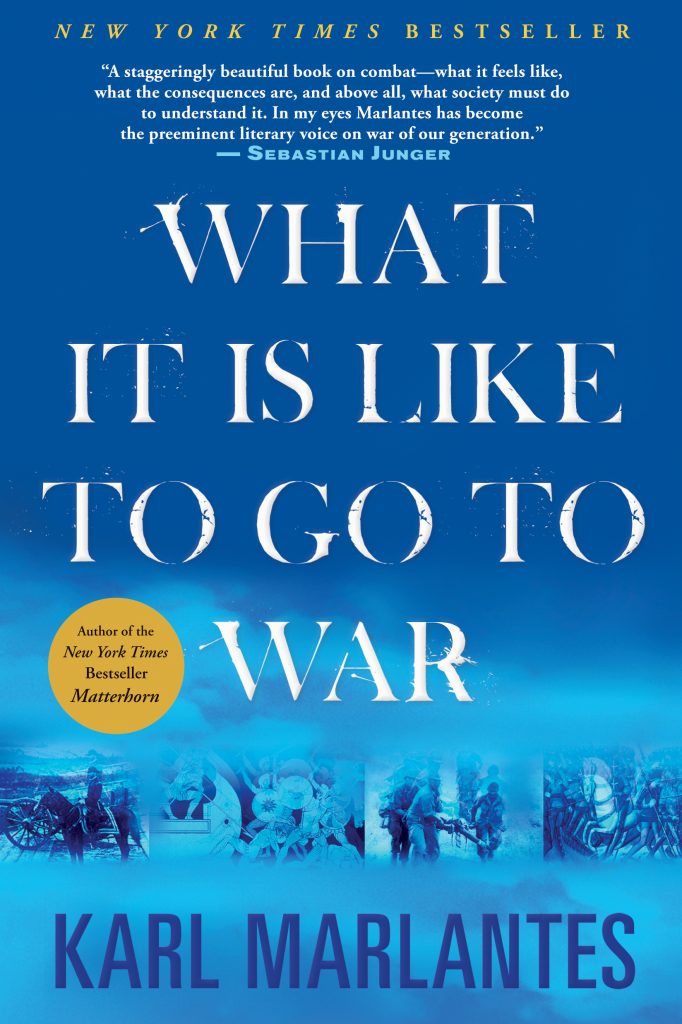
There are not a lot of books about the philosophy of war, but there should be, especially as we are a country that in the last couple of decades has sent our troops to Iraq (twice), Afghanistan (for the longest war in U.S. history), Yemen, Pakistan, Somalia, Libya, Uganda, Syria, and Niger. The goal of war, this book makes perfectly clear, is to kill people. Karl Marlantes asks a simple question. What happens when we send our youth — young people whose full sense of judgement and character has not yet reached maturity — to contravene the fundamental tenets of society.
Raised with the legal, moral, and religious tradition that Thou Shalt Not Kill, we nonetheless ask 18-year olds to kill other human beings. Often the requirement comes in a situation where opposing youth are being asked to do the same to them. Increasingly, however, the use of so-called smart weapons means a gunner or drone pilot could be 100s or 1000s of miles away. Still, their job is to kill, and to know that no weapon is smart enough to always distinguish between an enemy combatant and innocent bystander.
Karl Marlantes descriptions of battles he engaged in while in Vietnam are surreally alive and frighteningly tangible. Interspersed with battle scenes are Marlantes’ discussions of what it feels like to kill another person, to be involved in a life and death situation, and to try to reintegrate into society afterward. Marlantes calls upon literature from the Illiad and Baghavad Gita forward. He investigates psychology and spirituality. He talks about PTSD and pain and love and recovery.
Unfortunately, he, like many military professionals is still processing the last war, rather than thinking fully about the next one. Hand to hand combat and trench warfare, though they are at play again in Ukraine, have been displaced by drone and satellite driven technology. Killers take lunch breaks and go home to their spouses at 5 PM. Their spouses, unlike in Vietnam, are often husbands. Today’s volunteer Army is comprised of individuals whose motivations and backgrounds may well be different than those drafted in the 1960s. His book needs to be updated to match the trials of more modern warfare, but his principles remain very much in need of discussion.